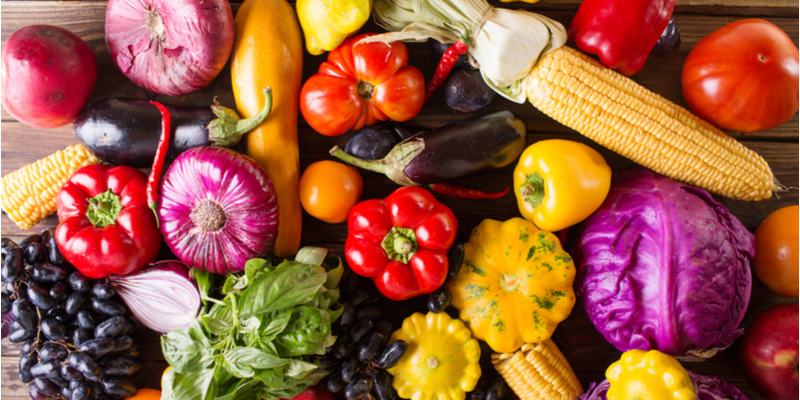
Nowadays, the fast-paced busy lifestyle is making us heavily reliant on convenient fast food options. This is one of the reasons behind increasing health complications among the majority. Despite this, some people do put the effort to commit to healthy eating habits for better health. But what if we told you that even this won’t solve your problem either? The green vegetables you consider healthy may not necessarily be so if you stay in Bengaluru.
As a result of recent research by the Environmental Management and Policy Research Institute (EMPRI) has revealed the alarming levels of heavy metal contamination found in vegetables throughout Bengaluru. This revelation added an additional layer of concern and made it even more complicated for individuals to distinguish between what is perceived as healthy and potentially harmful.
How bad is the contamination?
Researchers from EMPRI tested 400 samples of 10 vegetables (brinjal, tomato, capsicum, bean, carrot, green chilly, onion, potato, spinach, and coriander) from 20 stores across Bengaluru, five high-end supermarkets, five local markets, ‘organic stores’, and Hopcoms. The contamination is found to be above the permissible limits set by the Food and Agriculture Organisation (FAO).
For example, the permissible limit set by FAO for iron is 425.5 mg/kg. However, the samples tested were found to be 810.20 mg/kg in beans, 945.70 mg/kg in coriander, and 554.58 mg/kg in spinach. Similarly, cadmium is a dangerous element that causes toxicity in the liver and lungs and impairs the immune system. The permissible limit for this element is 0.2 mg/kg, but it is found to be 52.30 mg/kg in brinjal, 53.30/kg in coriander, 54.60 mg/kg in carrot, and 53.50 mg/kg in spinach.
Besides that lead is considered deadly if it exceeds a limit of 0.3 mg/kg. Even though it was below detectable levels in several vegetables, beans from a supermarket had 12.20 mg/kg. Also, nickel was found to be higher than the prescribed limit of 67.9 mg/kg in green chilly, carrot, potato, tomato, and beans.
Why is this happening?
The root cause of this contamination can be associated with unethical farming practices like the unregulated use of wastewater for irrigation in and around Bengaluru. The rapid urbanisation, coupled with inadequate sewage treatment infrastructure, has resulted in the discharge of untreated wastewater into nearby water bodies. So, if not used directly, this tainted water loaded with heavy metals like iron, lead, and cadmium eventually finds its way into the soil used for cultivating vegetables.
What are its health implications?
The presence of heavy metals more than the permissible level set by FAO in vegetables can pose a serious threat to public health. Heavy metals can have adverse effects on the human body if ingested for a longer time because of their toxic nature. Lead, for example, can cause neurological damage, developmental issues, and cognitive impairments, especially in children.
Whereas, cadmium is a dangerous metal that causes toxicity in the liver and lungs and impairs the immune system. It is also known to accumulate in the kidneys which may contribute to renal dysfunction over time. Mercury is yet another hazardous element that can negatively impact the nervous system and pose particular risks to pregnant women and developing fetuses.
Is there a way out for consumers?
Well, addressing this critical issue requires a multifaceted approach involving policymakers, farmers, and the general public, of course. But, this approach is time-consuming and might not be very practical. Hence, here are some of the actions you can take on an individual level to safeguard your plate.
Take responsibility and look for alternatives
Do your research, and find an alternative. For example, you can choose to opt for vegetables from sustainable agricultural practices. Hydroponic farms (farms that cultivate plants in nutrient-enriched water rather than soil, and can include an aggregate substrate, or growing media, such as vermiculite, coconut coir, or perlite) or those employing advanced water filtration methods are good alternatives.
Meanwhile, if you do your research and wish to shift to a low-risk alternative, then switching to frozen vegetables can provide a buffer against potential contamination.
Prioritise hydration and nutrient intake
Water is really helpful in diluting toxin concentrations in the body, so make sure you drink a lot of water. Similarly, intake of B vitamins and vitamin C supplements can be beneficial for some protection against toxins.
Incorporating chia seeds, sprouts, and whole grains, and other such fibre-rich foods into your diet can help reduce the absorption of toxins.
These might not be the ultimate solutions to the actual issue at hand, but these preventive measures can be of great help. Just make sure you are prioritising your gut health and including probiotics, found in foods like yogurt. This will help you further in the elimination of toxins from the body.









![Read more about the article [Funding alert] Insurance broker SecureNow raises $6M in Series B round](https://blog.digitalsevaa.com/wp-content/uploads/2021/12/MalvikaCopyofImageTagging2-1640772201551-300x150.png)
